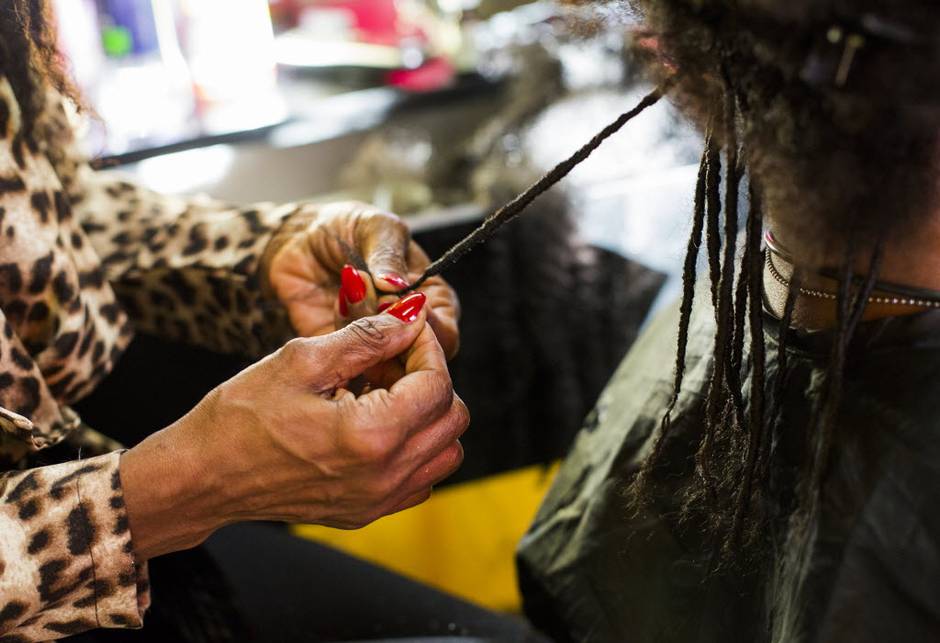By Dianne Solís
The Dallas Morning News.
Six weeks ago, Texas Gov. Greg Abbott inked a law that should have clipped forever a decades-long fight for Isis Brantley, a Dallas hair braider.
She’s combated regulations requiring her and other braiders to get barber and cosmetology licenses to run braiding businesses.
Now Brantley fears the fight won’t be over until education begins.
John Douglas, a Dallas braider, agrees. Douglas was told he had to get a barber’s license to work at a mall salon, he said.
Instead, the braider framed a certificate from Brantley’s school, the Institute of Ancestral Braiding, where hair beautification comes woven with African history.
“He said you need a [barber’s license] number just in case you mess up anybody’s hair,” the 29-year-old Douglas fumed. “All you have to do is unbraid them. There are no chemicals. It’s not bleaching.”
On June 10, House Bill 2717 became effective as law. The deregulation legislation exempts hair braiders from obtaining a cosmetology license to braid.
“Even after it passed, they still said I needed a license,” said Douglas, who quickly found work at another mall salon that knew of the legal changes.
At the Texas Department of Licensing and Regulation, spokeswoman Susan Stanford clarified the new law.
“They are free to go,” said Stanford, who says she’d like to take up braiding, too.
Stanford said the regulatory agency hadn’t received any complaints or inquiries about braiding deregulation since the law passed.
The new law exempts “a person who performs only natural hair braiding, including braiding a person’s hair, trimming hair extensions only as applicable to the braiding process, and attaching commercial hair by braiding and without the use of chemicals or adhesives.”
The 57-year-old Brantley has braided hair since the 1980s. The Dallas native emphasizes she only uses her hands, no sharp instruments and no chemicals.
In the late 1990s, Brantley was handcuffed and arrested for braiding without a license. After her release, she had to pay a $600 fine.
Her hair-braiding crusade turned into an annual parade, which carries her name. In 2013, she took the cause of “economic liberty” and her braiding school to the federal courts. There she was represented by the Institute for Justice of Arlington, Va., which argued Texas laws were applied to braiding schools in an “arbitrary and irrational” way.
In January, the Institute for Justice, a libertarian public interest law firm, won its case on Brantley’s school. It wasn’t the first time the public interest lawyers had represented African-style hair braiders.
Meantime, in African-American communities across Texas, hundreds of women braid hair out of their homes. A head of braided corn rows with extensions can cost $100 to $200 or more in the Dallas area.
“The informal economy has been going on forever in economically deprived communities,” Brantley said.














































































































































































































































































































































































